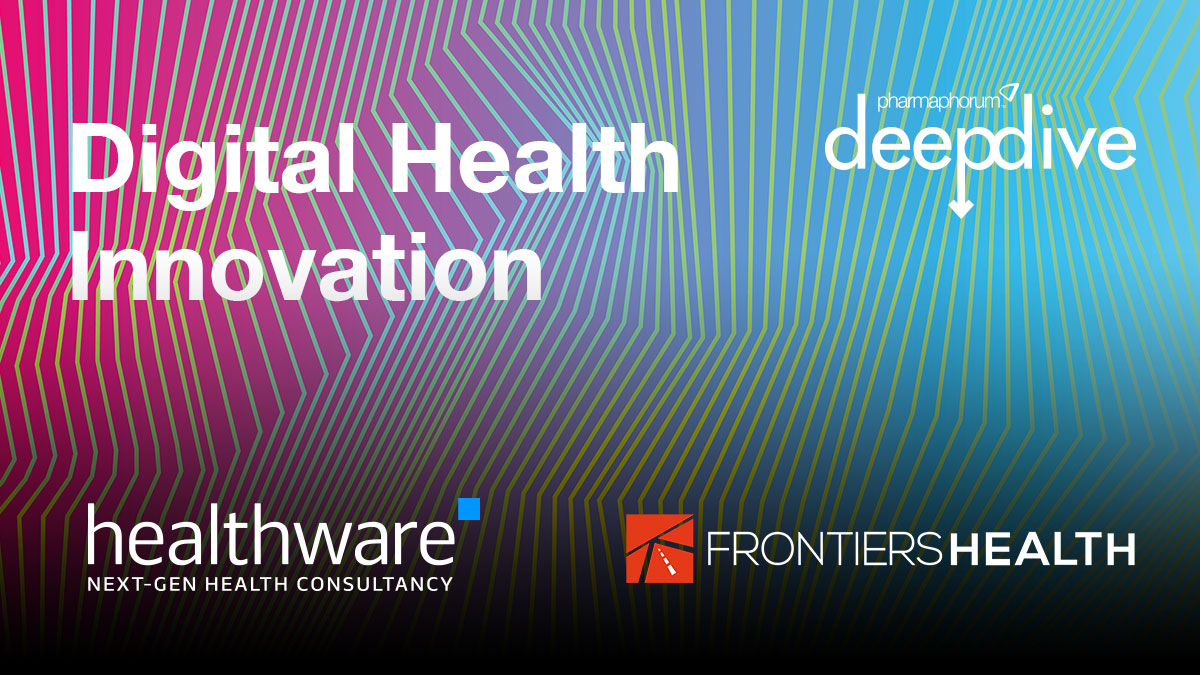European digital health innovation

Healthcare and the pharmaceutical industry are redefining their roles for the modern age as digital health tech radically alters the environment for all stakeholders.
From mobile apps to big data and artificial intelligence, disruptive technologies are being harnessed by start-ups, health systems and pharmaceutical companies in Europe to create an ecosystem that is fundamentally changing the way healthcare is delivered.
To take stock of these developments pharmaphorum has produced, in partnership with Healthware Group and Frontiers Health, a special edition of its Deep Dive digital magazine that’s dedicated to digital health innovation.
It begins by examining the development of a 21st century tech-enabled healthcare ecosystem, hearing about what happens when digital and medical collide from Healthware’s Roberto Ascione and there’s also an investor perspective from Min-Sung Sean Kim on European digital health start-ups.
An adviser to mySugr, where he was its first venture capitalist investor in 2014, Min-Sung Sean Kim notes digital health is “one of the greatest opportunities to combine making a meaningful impact and personal economic goals”.
He adds: “The opportunities are there for those who understand that purpose alone is not enough, and that financial opportunities are one of the key drivers that attract the capital injections to undertake the company’s purpose.”
 This issue of Deep Dive also features some of the leading lights from the European digital health scene, including mySugr, the Austrian diabetes start-up that was acquired by Roche in 2017.
This issue of Deep Dive also features some of the leading lights from the European digital health scene, including mySugr, the Austrian diabetes start-up that was acquired by Roche in 2017.
Having made that year’s stand-out health tech start-up exit, mySugr tells pharmaphorum about its vision of building an ‘open ecosystem’ within diabetes care and its twin-track plan for growth.
“On the one hand, we want to further simplify life with diabetes, working towards data being collected and analysed automatically, putting the data into context thus providing our users with valuable insight into their individual therapy patterns,” explains mySugr’s European business development director Gabriel Enczmann.
“On the other hand, there are so many patients who lack things like quality treatment time with their physician. They are not reaching their goals, so we are aiming at providing remote coaching through Certified Diabetes Educators via smartphone in between doctors’ visits.”
Other start-ups and digital health companies contributing to Deep Dive’s digital health innovation special include One Drop and its founder Jeff Dachis and digital therapeutics firm Voluntis.
Pierre Leurent, Voluntis’ chief executive, talks about how digital therapeutics are transforming patient outcomes by improving chronic disease care and treatment as companies look to appropriately incorporate their tech into patient care.
“Ultimately, what we’re doing is finding the optimal positioning between the technology and human interventions – we are not replacing the care being delivered by care teams,” he says.
“Instead, we are helping to extend it through these technologies, by providing better insights and interfaces for patients to engage with their healthcare team. These technologies are being designed to enhance, not replace human interaction.”
There’s also expert pharmaceutical commentary from Bayer’s Eugene Borukhovich on injecting a start-up spirit into a big pharma corporate system and how things need to change to accomplish this.
“A corporation needs the ability to laser-focus on doing things better,” he advises. “I would almost say that being in a smaller team is equivalent to a start-up, in that the team needs to grow and do better things.
“You don’t necessarily want the whole corporation to suddenly focus on doing better things, because the business needs to execute on the existing business model, but the smaller team can do this.”
Meawhile, Pfizer’s John Gordon explains how his company is collaborating with start-ups through the Pfizer Healthcare Hub network, which looks to identify, interact and support start-ups who have solutions for their patients’ most challenging problems.
“The premise is that if innovation is a combination of invention and adoption there is plenty of invention available across the world, but many small companies struggle to get their ideas adopted,” he says. “Where big corporates such as us can help is driving adoption and scaling these solutions to ensure more patients can benefit.”
Elsewhere in the issue you can read about how to build a patient empowerment experience by harnessing data and digital health, and what pharmaceutical companies need to do if they want to successfully work with European digital health start-ups.
• Read Deep Dive: Digital Health Innovation in full













